MPR 50th Anniversary Celebration: Tchaikovsky’s Souvenir de Florence
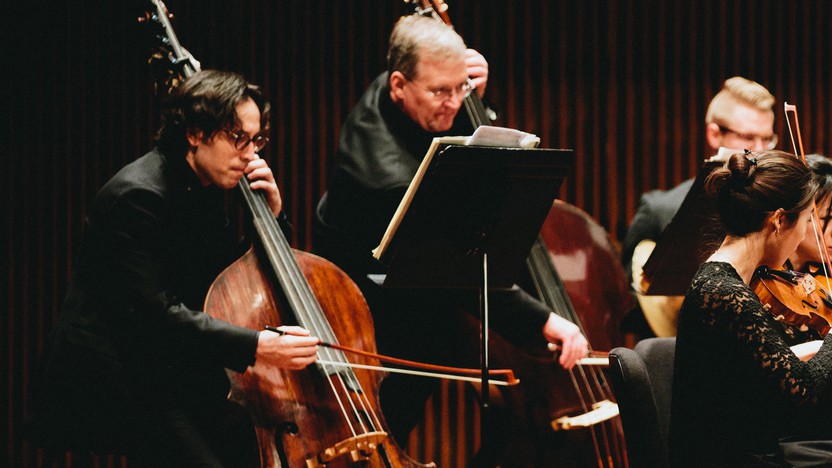
Sponsored By
- November 3-5, 2017


Sponsored By

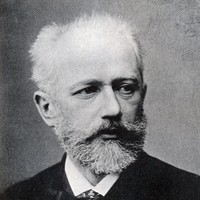
(Duration: 20 min)
In 1886, when the Saint Petersburg Chamber Music Society awarded Pyotr Ilyich Tchaikovsky an honorary membership, he promised to write a new work for them, but it ended up taking six years and many course corrections before their score was ready. Around the time he made his first sketches in the summer of 1887, he confessed his pernicious self-doubt in a letter, lamenting, “I’m beginning to fear that I am losing my powers of composition, and becoming angry with myself.”
Picking up the score again in 1890, which he had decided to construct as a string sextet in the mold of Johannes Brahms, he wrote to a fellow composer that he found it “terribly difficult working in this new form; it seems that rather than writing for six voices, I am, in essence, composing for the orchestra, and only then arranging it for six string instruments.” He gathered musicians to perform a draft that he appraised as “astonishingly bad in all respects,” and he put it down again until a quiet few weeks in Paris during the winter of 1891–92. Finally happy with the score, Tchaikovsky gave it the fond title Souvenir de Florence, a tribute to the city where, early in 1890, he jotted down the melody that would become the basis of the slow movement.
Souvenir de Florence makes an arresting entrance, launching immediately into a melody that starts with an unstable harmony and a crunchy four-note chord attacked fortissimo by the first violin. This fast and spirited opening movement in the key of D-minor turns out to be more frisky than fierce, maintaining a dance-like lift in its three-beat pulse.
After a tapering introduction, the slow movement presents the Florence-born theme, played dolce cantabile (sweet and singing) by the first violin over effervescent plucking, a texture that approximates the character of an Italian mandolin or guitar accompanying a love serenade. In a letter to his contact at the Chamber Music Society, Tchaikovsky wrote that this movement should be “played with great fire and passion.”
Traces of folksong color the scherzo as well as the lively finale. Tchaikovsky used the full resources of the sextet to craft these themes into more than just memorable tunes, amassing rustic textures and sophisticated layers of counterpoint on the way to a thrilling conclusion. Alongside his symphonic swan song from the next year, the Symphony No. 6, Souvenir de Florence stands as the pinnacle of what Tchaikovsky was able to achieve when he married his abundant gift for melody with a hard-earned mastery of formal structures.
Aaron Grad ©2023
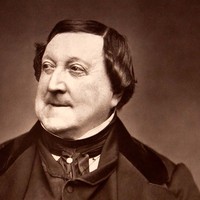
Gioachino Rossini was the greatest opera composer of his generation. From his first comic farce, written at age 18, to his crowning work for the stage, William Tell, he dashed off an astounding 39 operas in 19 years. Then, at the height of his fame and creative powers, Rossini withdrew almost entirely from composing. He never wrote another opera in his remaining 40 years.
Il signor Bruschino was already the eighth opera created by Rossini, who was just shy of his 21st birthday, and it marked the fourth commission in the span of a year from Venice’s Teatro San Moisè. As with his previous works for Venice, this new one-act opera took the form of a comic farce, featuring a small cast of performers who were as much comedians as singers.
The complete title of this opera hints at the basic outline of the story — Mr. Bruschino, or the Son by Accident. Florville wants to marry his beloved Sophia, but she is already promised to the son of one Mr. Bruschino. Florville pretends to be the younger Mr. Bruschino, but everything goes awry when the real Bruschino senior arrives and finds this other suitor impersonating his son!
The most distinctive sound in this playful overture is the rhythmic tapping of violin bows. The effect is surprising and whimsical, but the musical logic behind it is quite sturdy, with the rhythms mimicking themes already heard from the orchestra.
Aaron Grad ©2021
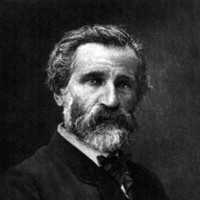
Guiseppe Verdi received his earliest music education from the local maestro di cappella in Busseto, Italy, where his father was an innkeeper. In 1832, when the small town raised scholarship funds for Verdi to attend the Milan Conservatory, the school rejected him as being too old to enroll and insufficiently trained, so he studied privately instead. Verdi convinced Milan’s renowned Teatro alla Scala to stage his first opera, Oberto, in 1839, and the production proved to be a hit. 54 years later, when the same theater presented Verdi’s twenty-eighth and final opera, Falstaff, the composer was by then a treasured hero in the new nation of Italy and an opera icon throughout the world.
In Paris in 1852, Verdi attended a new play by Alexander Dumas that would become the source for the opera La traviata (commonly translated as “The Fallen Woman”). It was a boldly modern and risqué subject for an opera—the love life and slow death of a prostitute with tuberculosis—and it led Verdi to explore new avenues of emotional realism and expressivity. The Prelude to Act III sets the tragic, final scene of the opera, with the heroine, Violetta, wasting on her deathbed.
Aaron Grad ©2017
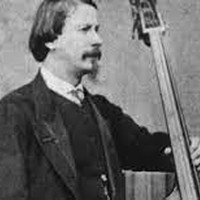
Giovanni Bottesini, the legendary virtuoso of the double bass, only picked up the instrument by a fluke. At the age of thirteen, having excelled in his studies as a violinist (along with singing in choirs and playing timpani), he prepared to audition for the Milan Conservatory, only to learn that the available scholarships were limited to bassoon or bass students. He learned enough bass in a matter of weeks to win the scholarship, and he graduated four years later with a prize that financed the purchase of his first high-quality instrument.
Bottesini built a career as a world-traveling bass soloist, and he also found success as a conductor and composer. His numerous operas have faded from the repertoire, but his scores for double bass remain cornerstones of the instrumental canon. He composed the Grand Duo Concertante in 1880 as a double concerto for two basses; the same year, the violinist Ernesto Camillo Sivori transcribed the work for violin and bass soloists, the version most often heard today.
Following a majestic introduction from the orchestra, the soloists arrive with a series of dashing cadenzas and a sweet melody that passes from the violin to the bass. There is an operatic quality throughout the single continuous movement, combining the virtuosity of an instrumental concerto with the drama of a vocal duet.
Aaron Grad ©2021

Rossini was just 18 when the Teatro San Moisè in Venice called him in as a late substitute to compose the music for La cambiale di matrimonio (The Marriage Contract), a one-act comic farce. He prepared the score in a matter of days, including the overture, which he adapted from a Sinfonia composed the previous year. It was Rossini’s first opera to reach the public, and the start of an auspicious career.
The overture’s cheery themes are made all the more vivid by an orchestration that showcases individual voices. A horn takes a broad solo in the slow introduction, and it leads another important motive in the fast body of the overture. Flute and clarinet share the contrasting theme, and a bassoon adds wry commentary. This colorful curtain raiser did well to set the stage for the antics of The Marriage Contract, which depicts an English father trying to marry off his daughter to a peculiar Canadian merchant.
Aaron Grad ©2017
Join us at these very special concerts to help celebrate MPR’s 50th Anniversary. We will honor our longstanding partnership with MPR and our joint commitment to sharing classical music with our community. Alison Young joins the SPCO on stage to interview musicians of the SPCO and SPCO Managing Director and President Jon Limbacher between pieces. Saturday evening’s performance will be broadcast live on Classical MPR.
Get driving directions and find nearby parking.
Find dining options close to the venue.
View seating charts to find out where you'll be seating.
Get driving directions and find nearby parking.
Find dining options close to the venue.
View seating charts to find out where you'll be seating.
